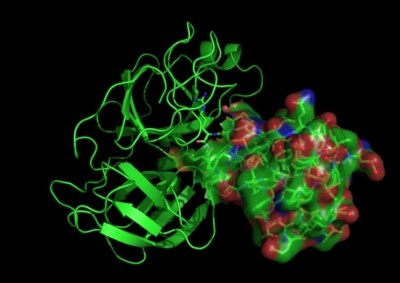AI-discovered peptides show efficacy in reducing age-related inflammation: Study

In a new study, the Nuritas team discuss details of a rice derived functional ingredient natural peptide network (NPN) using machine learning to further identify constituent bioactive peptides within the NPN.
This NPN was then assessed for its anti-inflammatory potential, where it appeared to play a role in reducing the presence of the inflammatory cytokine TNF-α in the blood.
“The results or the trial couldn’t come at a more significant time,” comments Dr Nora Khaldi, Nuritas’ founder and CEO.
“With COVID-19 heightening general awareness of inflammation and cytokines, discovering a natural product which can assist is a hugely significant finding for the team.
“This is as a result of years of hard work refining our AI and machine learning platform in combination with our expert in-house laboratory and team of world class scientific advisors.”
The study, which appears in the journal MDPI, explains how long-term poorly controlled inflammatory responses results in a general environment that favours inflammation, characterised by rising TNF-α levels.
Chronic low-grade inflammation is associated with ageing, which can increase the risk of pathologic conditions and age-related diseases.
This inflammation is also linked to increased skeletal muscle wasting, strength loss, and functional impairments.
The potential of bioactive peptides from food and plant sources as a way to address inflammation has been the subject of much interest with advantages not limited to high selectivity and efficacy and favourable safety and tolerability profiles.
However, these functional ingredients must be characterised and scientifically validated, hence an AI approach may prove suitable in deciphering the large, complex datasets produced as a result.
Nuritas Peptide Finder
Harnessing the firm’s AI technology NπΦ (pronounced N-pi-fy or Nuritas Peptide Finder), to initially characterise rice NPNs, the team were able to identify seven potentially active peptides.
To test peptide activity, 40 volunteers (healthy males and females aged 65–75 years with a BMI of less than 30 kg/m2) were enrolled onto the randomised, double-blind, placebo-controlled, parallel study.
They were randomly assigned to either the treatment (rice NPN) or placebo (maltodextrin) group, with 75% of subjects (sample size = 30) receiving the treatment and 25% (sample size = 10) the placebo.
Subjects were supplied with a four-week supply of rice NPN or placebo and instructed to take one 10-gram (g) dose each morning and one dose each evening for the study duration.
Upper and lower body strength through tests such as the chair stand test were carried out on the subjects as well as the hand grip test carried out at the start of the trial and at weeks 4, 8, and 12.
Results revealed that the ability to carry out physical challenges such as a chair stand test closely linked to a decrease in blood circulating TNF-α.
The team noted that changes observed were without additional exercise or specific dietary alterations.
“We show that at both test concentrations, treatment with rice NPN resulted in a statistically highly significant reduction in TNF-α secretion compared to the untreated control,” the research team writes.
“While a dose response was not attained by increasing the concentration of rice NPN, we do observe equivalent efficacy (50% reduction versus untreated) at both 0.5 and 5 micrograms per millilitre (µg/mL), which may be indicative of a saturation effect.”
Mechanism of action
Regarding the effect of supplementation with the rice NPN on upper and lower body strength, the team found the performance of the treatment group (rice NPN) in the repeated chair stand test improved compared to that of the placebo group,
Participants in the treatment group consistently completing chair stands in less time than those in the placebo group.
“While the precise mechanism of action of our peptides against TNF-α is not known, it has been shown previously that both endogenous and exogenous peptides can inhibit signal transduction pathways involved in the expression of inflammatory cytokines,” the team highlights.
“Moreover, some of the peptides presented here have been shown (both in silico and in vitro) to bind with high affinity to TNF-α directly potentially causing the disassembly of this cytokine or preventing the binding of TNF-α to its receptors on human tissues.”
Source: MDPI
Published online: doi.org/10.3390/foods9091147
“An Artificial Intelligence Characterised Functional Ingredient, Derived from Rice, Inhibits TNF-α and Significantly Improves Physical Strength in an Inflammaging Population.”
Authors: Kathy Kennedy et al.















